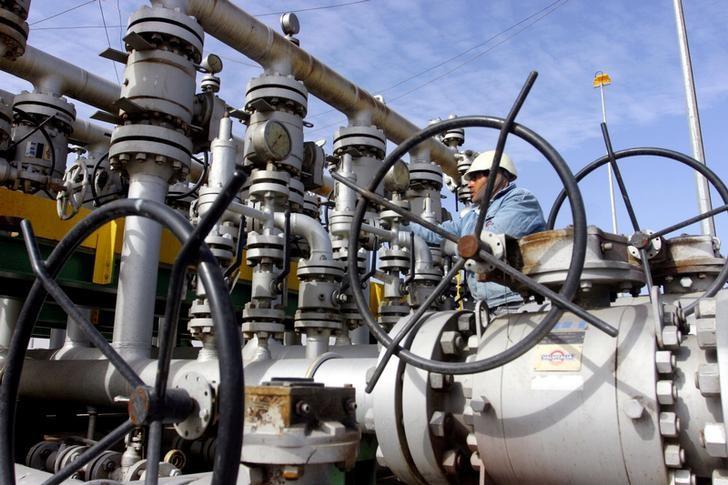Download PDF :


The Hill, 12 Jan 2017
In a 2002 radio interview, six months before the start of Operation Iraqi Freedom, Defense Secretary Donald Rumsfeld declared: “I can’t tell you if the use of force in Iraq today will last five days, five weeks or five months, but it won’t last any longer than that.” Fourteen years later, policymakers and military commanders are still managing the fallout from the 2003 invasion.
Rumsfeld, however, was hardly the only politician to underestimate Iraq’s challenges. When Donald Trump takes office in January, he will be the fifth U.S. president in a row to drop bombs on Iraq.
There are a few things he and his Cabinet should know as they engage a country at the center of U.S. policymaking for 25 years. Here are four of the most important:
1. Victory in Mosul does not mean the ISIS threat is over.
Iraq is today fighting a whack-a-mole struggle against an insurgency with a decade-long history in the country. Its armed forces are overstretched and increasingly exhausted as they push into the country’s second-largest city. As Baghdad commits more forces to Mosul, security forces struggle to control previously-liberated areas. In Fallujah – which was declared free in June – ISIS still operates from certain neighborhoods, preventing displaced residents from returning. In Anbar’s provincial capital Ramadi, ISIS’s ongoing use of booby traps, IEDs, and land mines forced local officials to delay civilian returns six months after the city’s liberation. Farther north in Kirkuk Province, ISIS still controls the town of Hawija, where nearly 200,000 civilians still live in what the area’s governor described as the jihadists’ “brain center in Iraq.” Without a plan to secure liberated territories and clear ISIS from its other bastions in Iraq, the insurgents will regroup – necessitating more costly interventions in the future.
2. Young democracies like Iraq are not the place for strongmen.
ISIS’s emergence across western and northern Iraq in 2013-2014 was largely fueled by then-Prime Minister Nouri al-Maliki’s sectarian policies that marginalized the country’s Sunni communities. On the same night that U.S. combat troops withdrew in 2011, Maliki ordered the arrest of Vice President Tariq al-Hashemi and two other Sunni opposition lawmakers, sentencing Hashemi to death in absentia. To enforce these policies and intimidate possible dissenting voices, Maliki transformed Iraq’s Special Forces into his praetorian guard, along with the intelligence services and judiciary. When these forces killed 41 civilian protesters in Hawija in April 2013, the resulting anger prompted some Sunni demonstrators in cities like Ramadi and Mosul to take up arms. Both fell to ISIS within 14 months.
Iraq needs a leader who can respond to cross-sectarian demands without resorting to violence or marginalization. The current Prime Minister Haidar al-Abadi has made great strides to perform this role, which must be encouraged. Troublingly, however, Maliki still operates behind the scenes to undermine Abadi’s policies, and has indicated plans to stand for elections in 2018. He and other sectarian figures considering a run in 2018, like the Shia Badr militia leader Hadi al-Ameri, represent the kind of strongman rule that will perpetuate Iraq’s crisis. Washington should support policies and figures that seek to govern for all Iraqis, not advance narrow sectarian or personal interests.
3. Reconstruction must address the long-term needs of Iraq’s people.
Iraqis have lived under near-constant wartime conditions since 1980. The ISIS incursion in 2014 deepened the trauma already inflicted on a weary population. An approach that only focuses on traditional security cannot break this cycle of conflict. Instead, the country’s leaders must promote human rights and development by addressing the long-term impacts of violence on Iraqis’ health and livelihoods. For example, they might introduce programs to administer trauma therapy and psychosocial support for children (and adults) who have witnessed unimaginable violence; implement gender development initiatives for victims of sexual assault and the communities in which they live; and fund educational opportunities, especially for young people, who have spent years away from school. These initiatives could bolster the final piece of Iraq’s reconstruction puzzle: a national reconciliation process among ethnic and religious divisions.
4. Iraq’s ability to secure its future is limited by serious economic shortcomings.
Baghdad is gripped by a serious economic crisis, preventing it from undertaking reconstruction on its own. In mid-2015 the global price of oil dropped from over $100 per barrel to below $50. Profit from oil export constitutes 43% of the country’s GDP, 99% of its exports, 90% of its government revenue, and 80% of its foreign exchange earnings. Within six months, oil’s market price was only half that needed for the Iraqi budget to break even. Between 2004 and 2015, Iraq’s government steadily expanded due to unnecessary hiring, inflating the national budget by 500% in 10 years. After twin shocks in 2014 – ISIS and the drop in oil price – Baghdad cut back new investments and struggled to keep companies like Russia’s Lukoil, Royal Dutch Shell, and Italy’s ENI in the country.
On Dec. 7 the Iraqi Parliament approved the 2017 budget, which left a $19 million deficit. While the World Bank predicts that Iraq’s economy will grow at 7.2% in 2016, the need for emergency aid and reconstruction will outstrip available funds. For example, Anbar’s governor predicted that it will cost $22 billion to reconstruct his province. Clearing mines and rebuilding destroyed infrastructure in Mosul will likely cost tens of billions of dollars to say nothing of investments urgently needed in education, public health, and other social services.
Ultimately, Iraq’s challenges today are great, but not insurmountable. If America’s incoming policymakers acknowledge the four principles above when formulating Iraq policy, they could reverse a troubling trend toward further violence, division, and threat. Such an achievement would be a powerful legacy for the Trump Administration.
 IRAQ WANTS OIL PRICE AROUND $65 - OIL MINISTER
Iraq
13.01.2017
IRAQ WANTS OIL PRICE AROUND $65 - OIL MINISTER
Iraq
13.01.2017




























